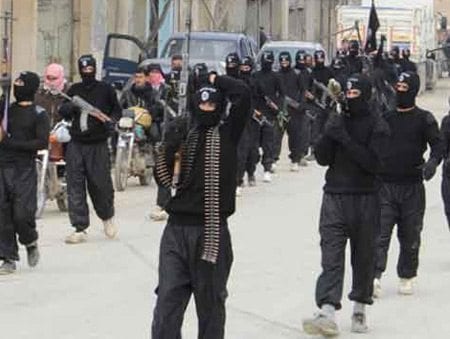Exclusive: ‘France doesn’t want us’ — Europeans who joined ISIS face Iraqi justice
By Anelise Borges • last updated: 27/09/2019
This week, Euronews brings you a series of exclusive reports on “Europe’s Children of ISIS”: the victims — and heirs — of one of the most brutal terrorist organisations the world has ever seen. We will ask: “What does future hold for these children? And what does this quandary say about Europe?”
Months after the final collapse of the so-called Islamic State in the deserts of eastern Syria, tens-of-thousands of its fighters and those that lived within its so-called caliphate face an uncertain future.
Many are in the north-eastern Syrian region of Rojava, where Kurdish authorities hold 10,000 ISIS fighters, including 2,000 foreigners, and wish to see them tried in local courts.
Read more: Euronews speaks to European children of IS being held in Syrian camps
“We’re asking for an international tribunal. Why should these courts be here? Because ISIS fighters’ atrocities were committed here, and because the evidence, the proof, the witnesses, are all here,” Abdulkarim Omar, co-chair of foreign relations in the Kurdish administration, told Euronews’ Anelise Borges in northeastern Syria.
‘There will be consequences for France’
But certain countries, including France and Belgium, have reportedly negotiated with third nations the process of bringing their citizens to justice.
At least 11 French nationals have been tried in the Iraqi capital, Baghdad, says Nabil Boudi, a lawyer who represents European nationals held in Syria and Iraq for suspected links to ISIS.
Boudi has warned that there could be consequences for France.
“If France’s involvement in the transfer (of French prisoners from Syria to Iraq) is documented, proved, France will be condemned in international and European courts,” he said.
“France is a signatory of international conventions notably against the death penalty within the context of the Council of Europe, which means it doesn’t have the right to transfer its citizens to a country where they practice torture or sentence people to death.”
Read more: Europe’s children of the so-called Islamic State
Now, in northeastern Syria, Europeans who lived in the caliphate are concerned that they will be transferred to Iraq.
“Yes, they said they would send us to Iraq to give us… how do we say it? Life in prison,” a French woman said told Euronews in the Ein Issa refugee camp.
“France would have preferred that we were all dead.”
Would these women have done anything differently if they could have foreseen their fate?
“Everything,” said one.
“You can ask anyone here and very few will tell you they are proud of what they did,” said another.

